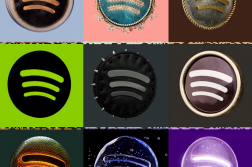I once drank 6 2-litre bottles of sparkling water in the course of an afternoon. …I say ‘once.’ This was by no means the first time and it certainly wasn’t the last. In fact, it’s something I’ve done without thinking on multiple occasions.
So, why did it happen, you ask? Have there been multiple occasions on which I thought I might die of thirst? And, more importantly, what fatal flaw in my personality has made me like sparkling water? The answer is simpler than you might think: I have ADHD, autism, and Obsessive Compulsive Disorder. Hyper-fixations are an intrinsic part of two of those disorders, and— spoiler alert— it’s not OCD, as you might think.
Instead, my hyper-fixations stem from my comorbid ADHD and autism. The easiest way to describe these conditions is to say that, at the core, both ADHD and autism are sensory processing disorders. People with autism can easily get overwhelmed or irritated by sensory stimuli and the same is true for people with ADHD. And when you have both… well… it’s literally double trouble.
Because I live with both of these conditions, literally every aspect of existing is more intense for me. Overwhelming sensory stimuli is doubly upsetting. But when something produces a positive sensation for me, it’s twice as wonderful. And that means I need it twice as much. In fact, that’s exactly why I develop extreme fixations for certain things.
I never know when my next hyper-fixation will hit— or what it will be. I never know when I will one day wake up and decide I hate the food, song, or drink I’ve been obsessed with for the past 6 months. As someone who lives with ADHD, everything about my life, my interests, and my sense of self feels transient. Liking something becomes my only personality trait… until the day I have to admit to everyone that, actually, I don’t even like it anymore. My feelings for my friends, family, and my cats are the only things that stay the same. ADHD and autism don’t affect my feelings for my loved ones– but when it comes to my tastes and hobbies, everything is up in the air.
By contrast, my autism dictates exactly the opposite. My ADHD often makes me hedonistic; I crave the things that will set off the happy hormones in my brain. But where my ADHD craves pleasure and adventure, my autism dictates security. If I like chicken tenders right now, my autism wants to know that I can count on chicken tenders all the time, at all costs. That no matter how horrible life becomes, no matter what I have to deal with, I can always count on chicken tenders.
For the autistic side of me, hyperfixations aren’t just pleasurable— they’re a form of security. They’re reassurance in a fast-paced, neurotypical world that was not designed for people like me. They’re the food/show/song equivalent of a warm hug— a reminder that I can always count on SOMETHING in a world that leaves me inherently unsettled.
As you’ve probably guessed, that’s true for my relationship with every interest in my life—food, songs, TV shows, and alcohol— and that’s where things get scary. Studies show that people with ADHD and autism are at an elevated risk for alcohol abuse and addiction. Impulsivity, hyperactivity, and an inability to tolerate frustration are all common hallmarks of ADHD, which lays a perfect foundation for substance abuse and alcoholism.
The funny thing is, for me, it’s never quite worked like that. Anyone who knows me knows that I love a drink, that I prefer to study in the pub with a pint. The difference is that I never drink with the aim of getting wasted. Although I’ve sometimes gotten more messed up than I intended, the difference is that, for me, getting wasted is an unwelcome side-effect rather than the end goal.
So, why do I drink? I drink, first and foremost, for the taste. But I also love the experience. The bars and pubs I frequent are fantastic in their ambience. It’s not the same as drinking in some random grotty student pub— I choose places that carefully curate their vibe and then I all but move in.
However, I’ve discovered that I can go off a taste just as quickly as I fixate on it— and that’s how I know I’m not an alcoholic. In fact, I’m so afraid of getting addicted that I’ve often given myself a week or two of random alcohol-free days just to see if I can do it. (Spoiler alert: I can, with literally zero ill effects). Although I’ve noticed that I do continue to crave alcoholic drinks on my off-days, I’ve discovered that I crave it in the same way as chicken tenders or sparkling water: the way I want a certain TASTE rather than a certain SUBSTANCE.
Although I sometimes miss certain tastes, I can tell that it’s a sensory thing rather than a bodily addiction. I’ve also noticed that, if my current alcohol-based obsession isn’t available, my urge to drink diminishes completely. This proves to me again that my relationship with alcohol is sensory and taste-based rather than a chemical need to have alcohol at all times, even if it tastes like drain cleaner.
So, while I feel lucky to have dodged a bullet with addiction in my own personal experience, I’m still acutely aware of the fact that my mind and body are primed to develop unhealthy fixations on anything… whether it’s chicken tenders or cider. And that’s why I’ve chosen to write about this: so that everyone who reads this can have a reminder of this underrepresented symptom and the necessity of supporting your friends who live with ADHD and/or autism.




